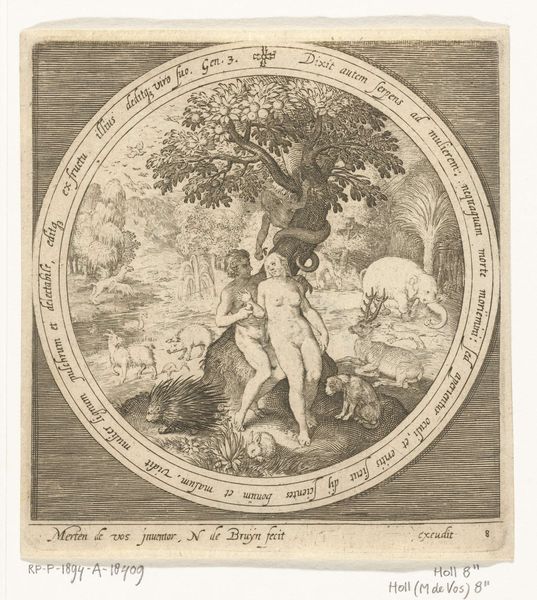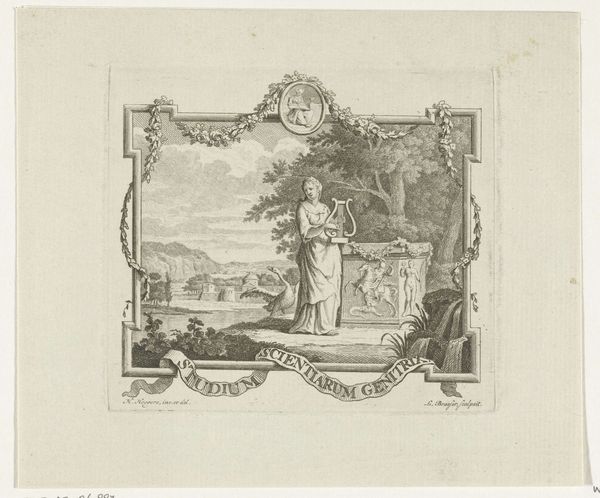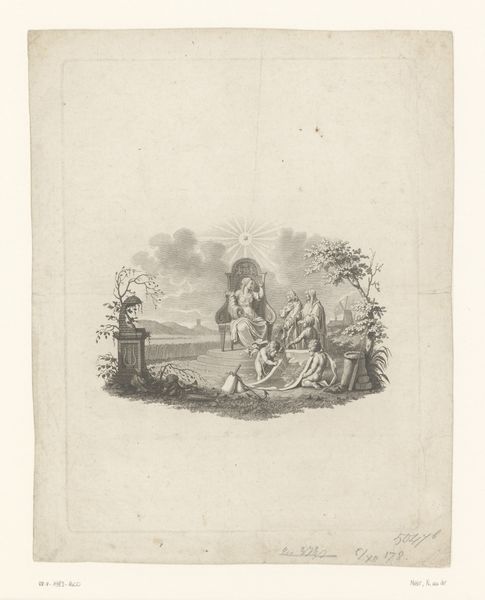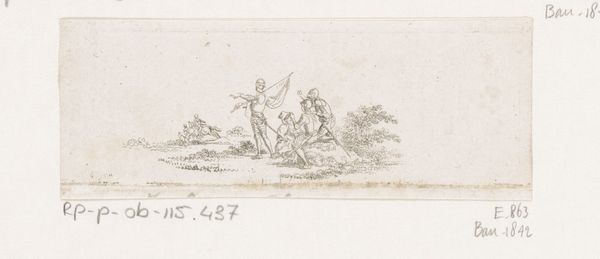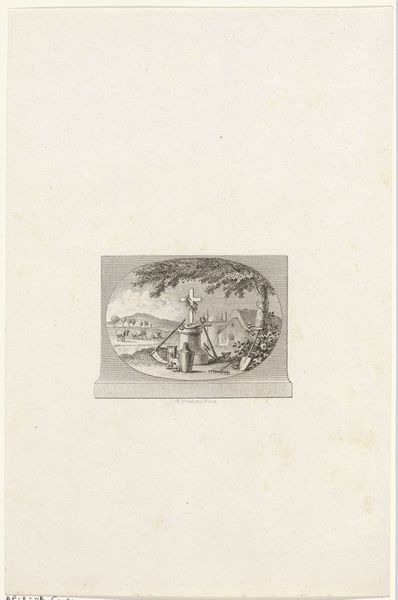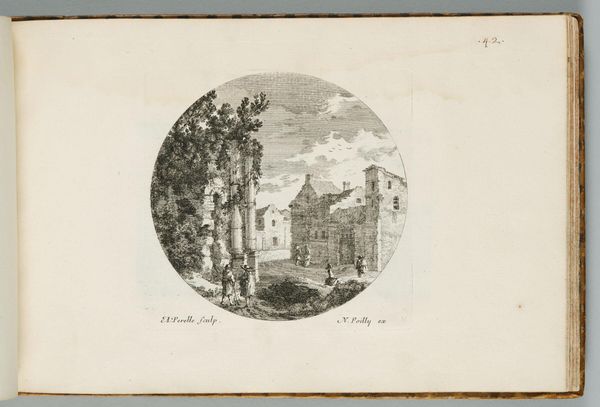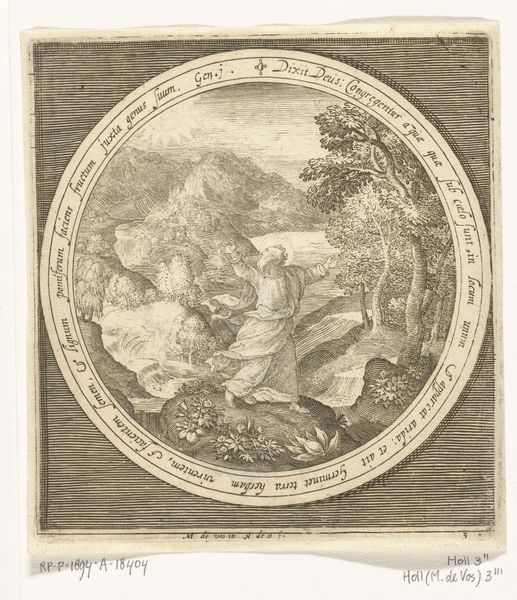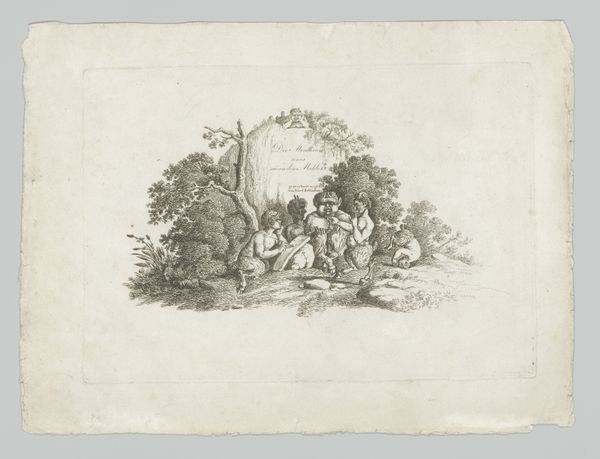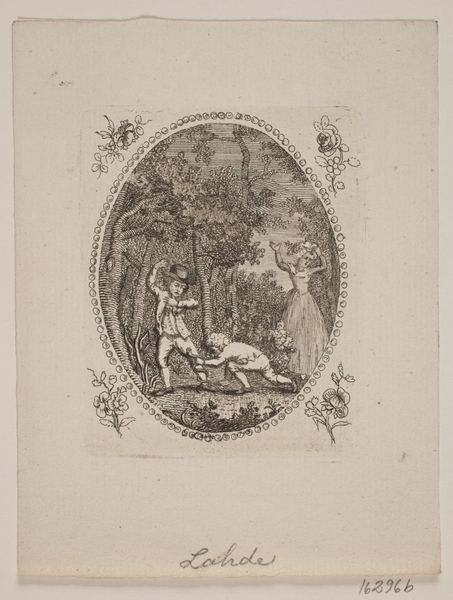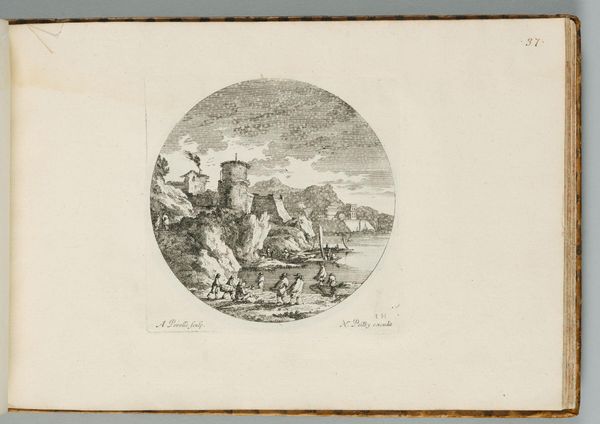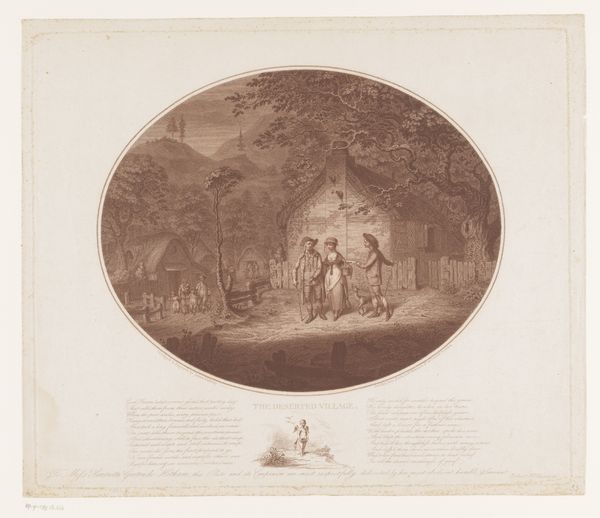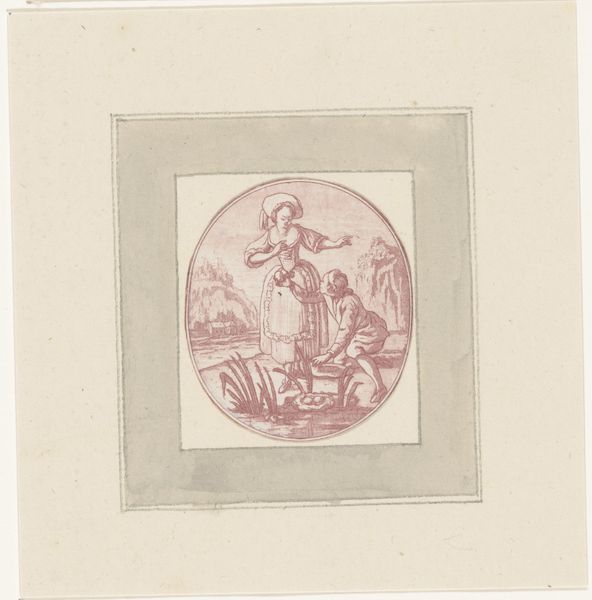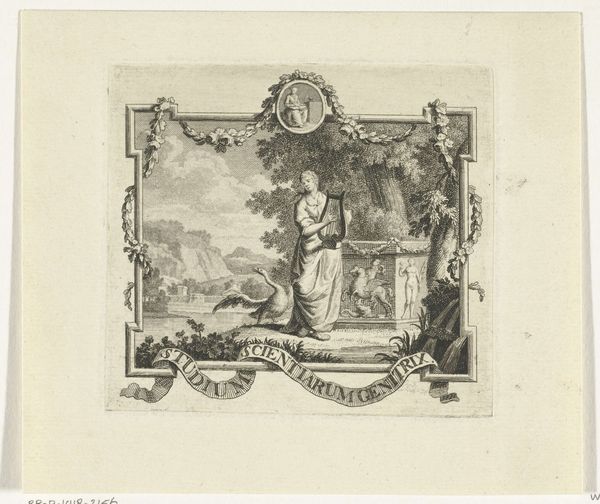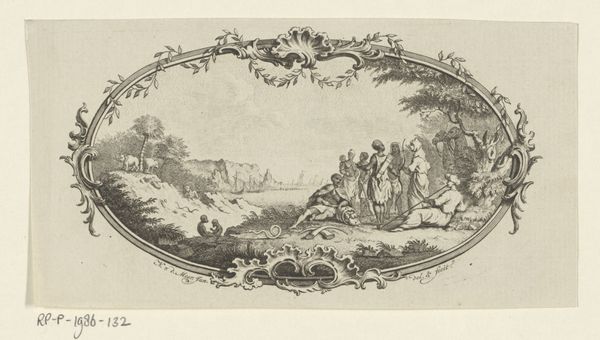
Dimensions: support: 110 x 136 mm
Copyright: CC-BY-NC-ND 4.0 DEED, Photo: Tate
Curator: Edward Francis Burney's "The Widower: Vignette," presents a delicate wash drawing on paper. It’s quite small, only about 11 by 13 centimeters. Editor: The somber mood is palpable, isn't it? The monochrome palette and the weeping figure evoke a real sense of loss. Curator: Indeed. Burney created this artwork in 1819, during a period of heightened sentimentalism. The image is ripe with symbols of mourning, drawing from Neoclassical motifs. Editor: Notice how the man's posture echoes the drooping tree; a visual metaphor for grief and perhaps society’s attitude towards the bereaved. Curator: Precisely. The idealized woman on the tomb represents the departed, while the landscape alludes to classical notions of remembrance and the sublime. Editor: Considering the social conventions of the time, it’s interesting how openly grief is displayed here, serving almost as a public declaration. Curator: This work provides an insight into the social expectations and emotional expression of the era. Editor: A poignant piece that speaks to the universality of sorrow.
Comments
tate 3 months ago
⋮
http://www.tate.org.uk/art/artworks/burney-the-widower-vignette-t08729
Join the conversation
Join millions of artists and users on Artera today and experience the ultimate creative platform.
tate 3 months ago
⋮
Little is known about this drawing, but the oval format suggests it was intended as a book illustration. The contemplative man seated by a tomb in the countryside can be associated with the poetic figure of the ‘man of feeling’. The delicate, decorative style of the drawing shows the influence of French rococo art in Britain, which was characterised by the use of curving natural forms. Although the signature on the drawing refers to Thomas Stothard, it has traditionally been attributed to Edward Francis Burney. Both artists were prolific book illustrators. Gallery label, October 2019
